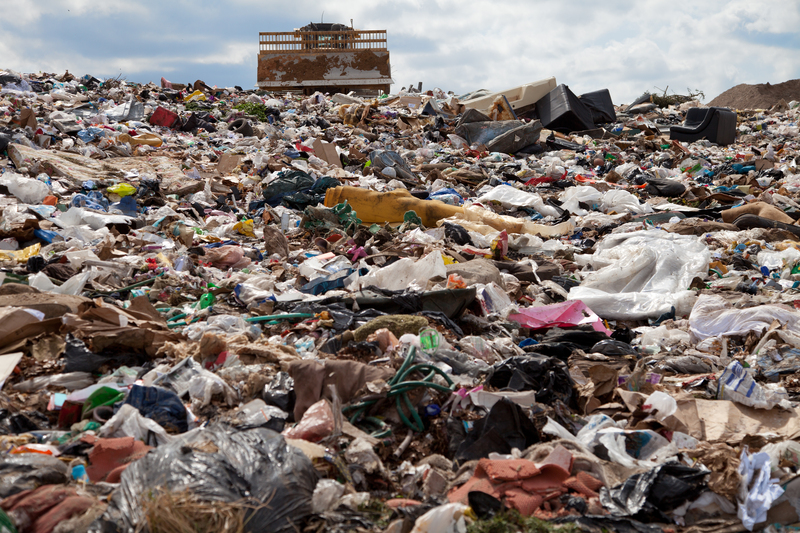How to Make Bulky Waste Disposal Affordable and Easy
Bulky waste disposal can be a challenge for households, landlords, businesses, and anyone facing large, unwanted items that cannot simply be put out with regular trash. Items such as old furniture, mattresses, appliances, and garden debris quickly take up space and are often heavy or awkward to move. However, getting rid of bulky waste does not need to be expensive or difficult. In this comprehensive guide, we'll show you affordable and easy ways to dispose of bulky waste while also considering environmental impact and local regulations.
What Is Bulky Waste?
Before exploring disposal methods, it's important to understand exactly what counts as bulky waste. Generally, bulky waste refers to items that are too large for standard curbside garbage bins or communal skips. Common examples include:
- Sofas, armchairs, and other large furniture
- Bed frames and mattresses
- White goods (fridges, washing machines, ovens, etc.)
- Carpets and rugs
- Exercise equipment
- Garden waste (tree branches, old sheds, fencing, etc.)
- Large toys and playsets
- Construction debris or leftover renovation materials
Bulky waste often requires special handling due to its size, weight, or environmental hazards (e.g., refrigerants in old fridges). This is why many local waste management services offer specific bulky waste collection solutions.

Why Is Bulky Waste Disposal a Challenge?
Error-free bulky waste disposal can be tricky for several reasons:
- Transportation: Large items may not fit into personal vehicles.
- Manpower: Heavier pieces require multiple people to move safely.
- Costs: Some services charge high fees or have limits on free collections.
- Disposal regulations: Certain items (e.g., refrigerators or electronics) must be processed in special ways due to hazardous materials.
- Environmental considerations: Improper disposal can be harmful and is often illegal.
Understanding your options not only saves you money but also helps ensure that bulky items are disposed of responsibly.
Affordable Bulky Waste Removal Methods
1. Use Local Authority Bulky Waste Collection
Most municipalities and councils offer dedicated bulky waste pickup services, sometimes free of charge or for a small fee. These options are often the most cost-effective ways to dispose of bulky items.
- Check your local government website or waste department for collection details.
- Book a pickup slot online or by phone.
- Prepare your items according to guidelines (some areas require items to be placed outside on the curb).
Tip: These services may have restrictions on the type and quantity of items collected per booking. Grouping your disposal with neighbors can help maximize efficiency and split costs.
2. Donate Usable Items
Before hauling your bulky waste to landfill, consider if it could serve someone else. Donating or offering items for free is both an eco-friendly and budget-friendly approach. Try:
- Local charities and thrift shops - many offer free pick-up for larger furniture.
- Online platforms (Facebook Marketplace, Craigslist, Freecycle) to advertise giveaways.
- Community "giveaway" groups or neighborhood notice boards.
Ensuring items are clean and functional increases the likelihood of successful rehoming.
3. Hire a Rubbish Removal Service
If time is of the essence or you have a large quantity of bulky waste, professional rubbish removal companies can help. To keep costs low:
- Get multiple quotes and compare services.
- Sort and consolidate all trash before pick-up - most companies charge by weight or volume.
- Schedule during off-peak times or inquire about community discounts.
Note: Always verify that the company is licensed to handle waste; improper disposal can lead to legal trouble for you.
4. Take Waste to Your Local Tip (Household Waste Recycling Centre)
Transporting your own bulky waste to a recycling center can be highly affordable, especially if you have access to a van or large car. Most centers allow residents to dump certain bulky items either for free or a nominal fee.
- Check what materials are accepted (some centers won't take certain appliances, tires, or hazardous waste).
- Bring ID or proof of residency as required.
- Separate items for recycling where possible to minimize fees.
5. Buy, Sell, or Swap
Turning your bulky waste into cash is an added bonus. Selling valuable items (such as lightly used furniture or working appliances) on platforms like eBay, Gumtree, or LetGo offsets any disposal costs. Swap groups are also a great way to exchange unwanted goods.
- List high-quality photos and honest descriptions for best results.
- Bundle items for quicker sales or trades.
- Plan for contactless pick-up if needed for safety.
6. Hire a Skip Only If Necessary
While skip hire is a familiar solution for construction or renovation debris, it may not always be the most affordable option for bulky waste disposal. Skips generally require permits and can be expensive for single-item pickups. Consider this only if you have a large volume of mixed waste or a group effort that fills the skip efficiently.
Tips to Make Bulky Waste Disposal Easier
Follow these strategies to streamline the process:
- Plan ahead: Anticipate disposal needs during moves or renovations and schedule pickups early.
- Disassemble large items: Breaking down beds, cabinets, or sofas makes handling and loading easier.
- Ask for help: Enlist friends, family, or neighbors to assist with heavy lifting.
- Label hazardous items: Appliances such as fridges should be clearly identified for safe disposal.
- Avoid fly-tipping: Illegal dumping is subject to fines and environmental costs. Always use authorized outlets.
Special Considerations for Specific Item Types
Mattress Disposal
Dumping mattresses can be especially tricky due to their size and materials (springs, foam, etc). Several mattress recycling initiatives exist. Check with:
- Local recycling centers (many now offer mattress collection or drop-off).
- Mattress retailers (some offer "take back" schemes when you buy a new bed).
Appliance Disposal
Appliances often contain refrigerants or electronics that require special handling. For affordable removal:
- Ask retailers about disposal when purchasing replacements.
- Check if your municipality runs a white goods collection day.
- Use dedicated recycling services to ensure safe and eco-compliant handling.
Garden Waste
Trees, old fencing, and landscaping waste can usually be composted or disposed of at garden waste centers. Chipping and mulching large branches at home saves money and benefits your garden. Many local councils offer seasonal green waste collection.
How to Reduce Future Bulky Waste
Minimizing the amount of bulky waste you generate can save money in the long run. Consider these practical steps:
- Buy durable, quality furniture and appliances that last.
- Repair rather than replace wherever possible.
- Opt for modular or flat-pack designs that are easier to disassemble and move.
- Rent or borrow items (e.g., garden tools, event furniture) as needed instead of buying for one-time use.
- Consider secondhand markets for both purchasing and disposing of large items.
Adopting a more sustainable approach not only cuts down bulk disposal hassles but is also kinder to the planet.
The Environmental Impact of Responsible Bulky Waste Disposal
Properly handling bulky waste is more than just a practical concern. Many bulky items contain valuable materials (metals, wood, plastics) that can be recycled, reducing resource extraction and landfill space. Some contain hazardous substances that, if mishandled, pollute soil and water. By using ethical disposal methods, you:
- Reduce your environmental footprint
- Ensure hazardous items are processed safely
- Potentially enable reuse of parts or materials by others

Frequently Asked Questions on Bulky Waste Disposal
Can I put bulky waste out with my regular trash?
Usually not. Most municipalities prohibit large items from being collected with standard trash due to volume and handling issues.
Is it possible to get rid of bulky waste for free?
Yes! Many local councils offer free bulky waste collection days or accept items at no cost at recycling centers. Giving away, donating, or selling usable items is always free.
How do I safely dispose of electronic waste and appliances?
Check for local e-waste recycling events or disposal centers. Retailers may collect old products where regulations require.
Are there limits to how much I can dispose of at once?
Some services cap the number of large items per pickup or visit. Always confirm with your provider.
Summary: Making Bulky Waste Disposal Simple and Cost-Effective
Disposing of large, unwanted items doesn't need to drain your wallet or overwhelm you. By utilizing local services, DIY drop-offs, online swapping, or charitable donations, you can achieve affordable bulky waste removal that is also environmentally responsible. Always check your area's specific rules, plan ahead to avoid last-minute costs, and explore every reuse and recycling opportunity.
Responsible bulky waste disposal benefits not just your home, but the wider community and environment. Use the tips in this guide to manage your next clear-out with confidence and ease!
